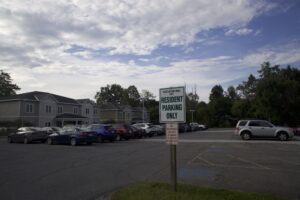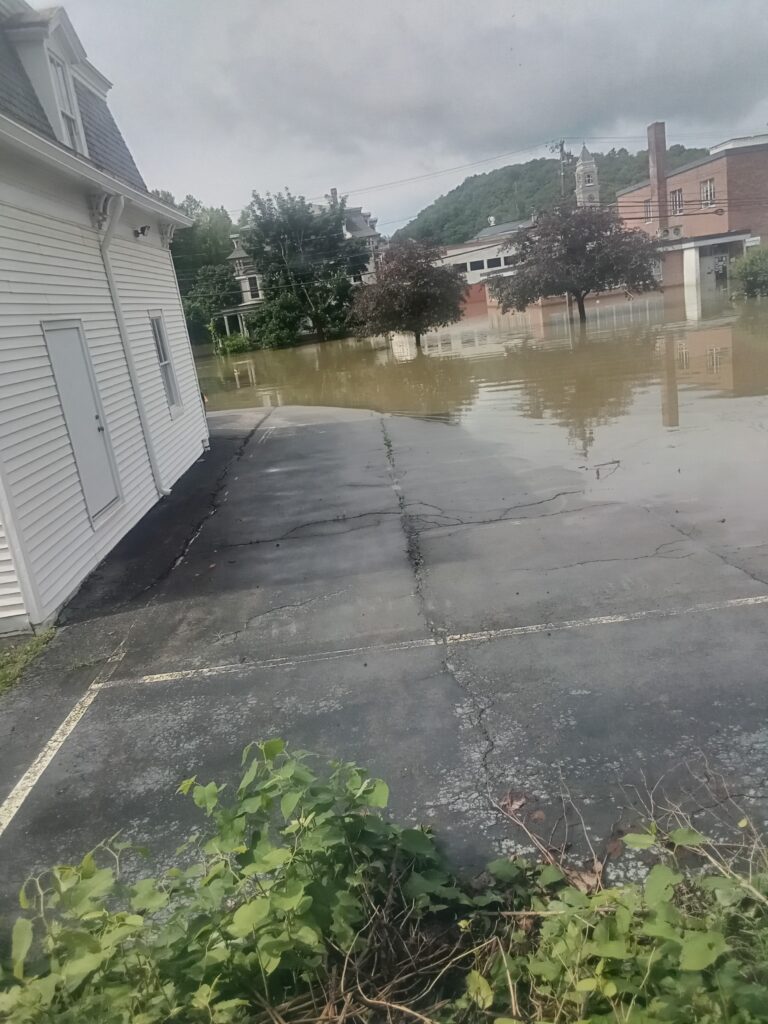Parking rule changes cause growing pains in wake of merger

When students attending what was formerly known as Castleton University heard of the upcoming merger, many of them grew nervous of the changes they felt were about to come about on their beloved campus.
What would become of the library, Fireside Café, Coffee Cottage, and even the food in the dining hall? Many aspects of residential life felt uncertain, and students prepared themselves for change.
That being said, no one seemed to have any concerns about the school’s parking situation until the new rules associated with parking on campus were already in place.
In an effort to give students a better understanding of these rules, Keith Molinari, assistant director of Public Safety at VTSU Castleton, agreed to discuss the ins and outs of the changes.
“When it comes to the parking rules themselves, there’s only one change to the parking policy, and that would be that there are no longer upper-classmen and first-year student parking,” Molinari said.
He explained that, previously, upperclassmen could only park in the residential lots for Ellis, Hoff, and the Houses.
This rule has now changed, allowing first-year students to park in any lot, a decision that has disrupted returning students who feel they earned the right to park in a lot where only other returning students can park.
“It’s rather frustrating,” said Nickles Thomas, a second-year Psychology student, “because I spent all last year looking forward to the upper classmen parking lots, only to never find any parking near my building because it’s full of freshmen.”
Third year psychology student Ethan Woodbury is equally put-off, saying he’s opted to simply not park on campus for the semester.
He believes that it’s “unfair to the classes above that had to wait parking anywhere they wanted to.”
In addition to that rule, the parking passes themselves underwent a change.
“Currently we have switched over to an outside vendor called Rydin Decal,” said Molinari. “This vendor’s program allows a student to go in, purchase their permit, and attach up to three vehicles to said permit.”
Still, things aren’t all bad when it comes to the new system, according to Molinari. There are plenty of cool benefits as well that went into consideration during the decision-making process, he said..
He added that are benefits to the new system, such as being immediately emailed when you get a ticket, that way there’s “no real way to not know about a ticket and have them build up over time.”
Being aware of tickets is an important issue on campus, since three unpaid tickets within the system lead to a boot being placed on the car, which won’t be taken off until the student pays for them.
Still, many students on campus speak on missing the old system and have wondered why we got switched to Rydin Decal.
“Not to say our system wasn’t working, but this system (Rydin) is probably, in the long run, more customer service friendly and advantageous to us as an institution,” Molinari commented. “Right now, we’re just going through the growing pains of transition due to everybody trying to learn a new system.”
Due to the difficulty of the transformation process, Public Safety has made a point of not being harsh with ticketing and will continue to do so until adequate time has been given to sort out any lingering issues.
“I don’t believe we’ve hit a good threshold yet for registered vehicles,” he said, estimating only about 60 percent of students have registered their vehicles, and even fewer having received their permits.
Discussing ticket appeals, he assured that the process is still the same.
“The appeals don’t go through Rydin, the appeals sit with us, I still have the same authority when it comes to the appeals process as before,” he said.
But why exactly did the switch to Rydin mean getting rid of the upper classmen parking? Keith spoke on this as well, citing difficulty as the main reason.
“In terms of upper classmen and first year student parking, in order to actually implement that on the new system, we’d be adding another layer of issues. In the end, we went for simplicity on a system that I’d already anticipated a lot of issues with.”
So, in the end, the upper classmen parking didn’t go away as a punishment to returning students or to increase the morale of incoming first-years, but rather to streamline the parking process.t






